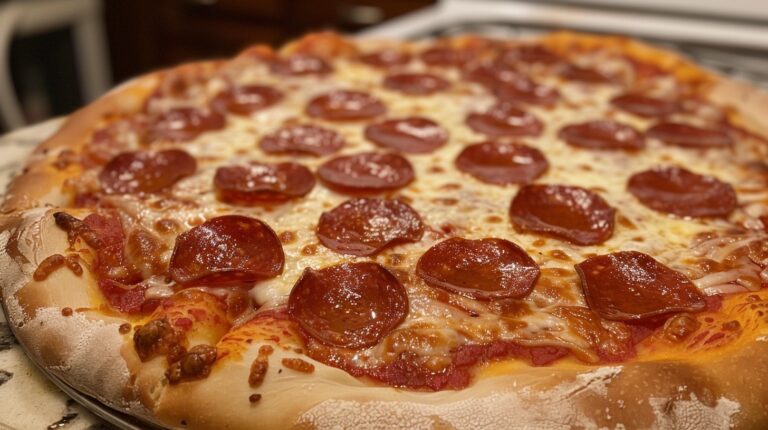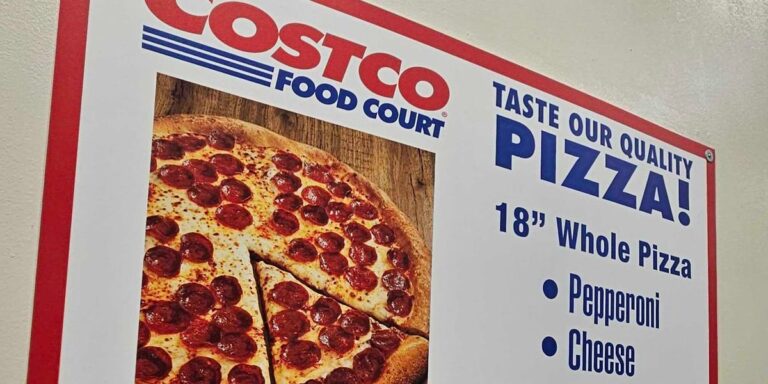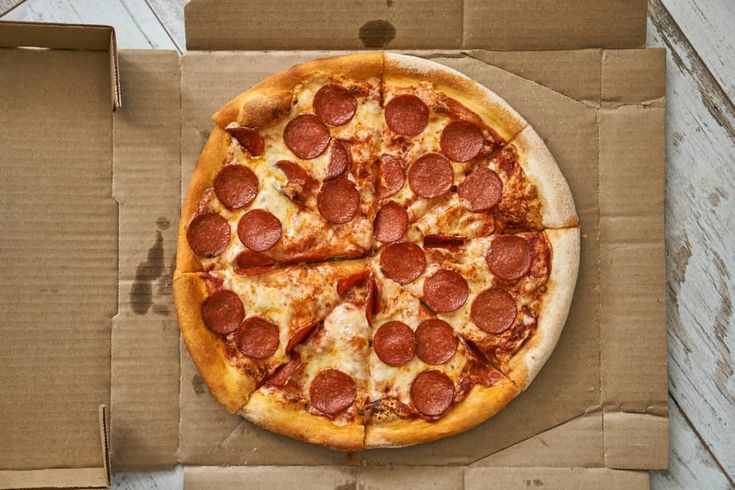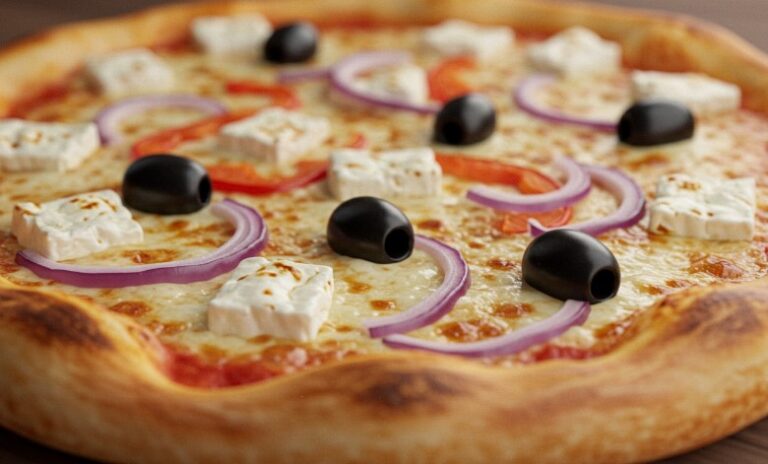Proper pizza dough storage is essential for achieving the best results in homemade pizzas.
Using the right containers helps maintain dough quality, ensuring it rises correctly and develops optimal texture and flavor.
Table of Contents
ToggleTypes of Containers for Pizza Dough Storage
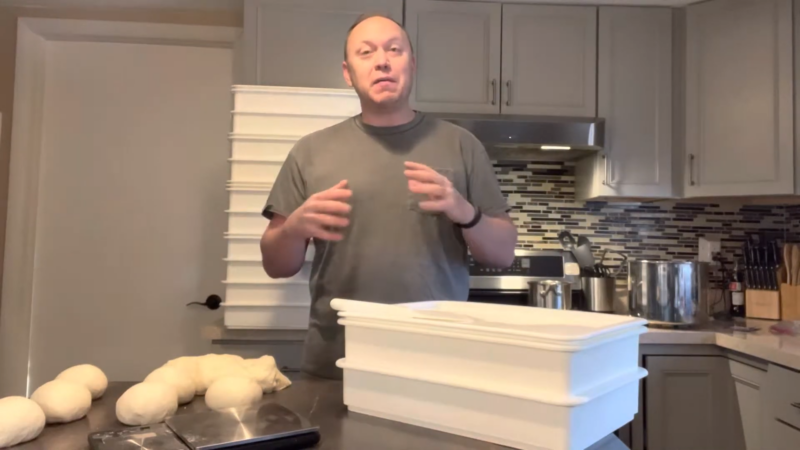
When it comes to storing pizza dough, the type of container you choose can make a significant difference in the fermentation process and final product.
The right container not only facilitates its growth and development but also helps in maintaining its texture and flavor.
There are various types of containers suitable for different stages of dough preparation and specific pizza styles.
Large Lidded Vessels
Large lidded vessels are ideal for bulk fermentation, or the first rise of the dough.
These containers, such as 4-quart Pyrex bowls, provide ample space for the dough to expand and develop its gluten structure without being constrained.
The transparency of Pyrex bowls also allows you to easily monitor the progress, ensuring it rises properly and is ready for the next stage of preparation.
Pyrex bowls are also heat-resistant, which means they can be used in various temperature conditions without the risk of breaking.
Versatility is especially useful when working with dough that requires cold fermentation.
The non-reactive nature of glass ensures that there is no unwanted chemical interaction, preserving its purity and taste.
Individual Dough Ball Containers

Individual dough ball containers are perfect for storing portioned dough balls after the initial rise.
These, such as deli quart containers or the Ooni Stack, offer a convenient way to manage and organize multiple dough balls.
They ensure that each portioned ball has enough space to continue fermenting and proofing, ultimately leading to a more consistent and manageable during the final preparation stages.
Using individual containers for dough balls also helps in maintaining uniformity in size and shape, which is essential for achieving even cooking and a consistent crust in each pizza.
These are typically made from plastic or glass, both of which are easy to clean and reuse.
Plastic containers are lightweight and often come with airtight lids that prevents it from drying out, while glass containers, being non-reactive, are excellent for longer storage periods.
The individual compartments in these stacks help in preventing the dough balls from sticking to each other, making it easier to handle them when it’s time to bake.
What are the Materials You Can Use
When selecting containers for pizza dough storage, it’s important to consider the material of the containers.
Different materials offer various benefits and may be more suitable for different stages of dough preparation.
Here are some common materials used:
Plastic
BPA-free plastic containers are a popular choice due to their flexibility in sizes and affordability.
These containers are lightweight, making them easy to handle and store, which is particularly beneficial for home bakers with limited storage space.
They come in various sizes, allowing you to choose the perfect fit for your needs, whether you are fermenting bulk or storing portioned dough balls.
One of the significant advantages of BPA-free plastic containers is their safety. BPA-free ensures that no harmful chemicals leach into your food, maintaining its purity.
This is crucial for maintaining the quality of the pizza crust and ensuring that no unwanted flavors are introduced.
Glass
Glass containers are another excellent option for storing pizza dough.
They are durable and non-reactive, meaning they won’t interact with the ingredients, preserving its quality and flavor.
Glass containers are also easy to clean and are dishwasher-safe, making them convenient for regular use.
Glass is suitable for freezing, allowing you to store it for extended periods without compromising its integrity.
The non-reactive nature of glass ensures that the dough remains uncontaminated, preserving its original flavor and texture.
Furthermore, the transparency of glass containers allows you to monitor the progress without having to open the container.
Aluminum
Aluminum containers are less common in home kitchens but are typically used in professional settings.
These containers are lightweight and provide excellent thermal conductivity, which can be beneficial for maintaining consistent temperatures during storage.
However, aluminum ones are not as widely available for home use and may not offer the same convenience as plastic or glass options.
They can be prone to denting and may react with acidic ingredients, which could potentially affect the flavor of the dough.
Despite these limitations, aluminum containers are highly valued in professional kitchens for their efficiency and durability.
Features to Consider
Of course, there are several features you need to be aware of before you make a choice.
Size and Shape

The size and shape of your pizza dough container should match the size of your dough balls and the type of pizza you’re making.
Round containers are ideal for round pizzas, ensuring that it retains its shape during fermentation.
For sheet pizzas, square or rectangular containers are more suitable, providing the right structure for the dough to expand and proof.
Lid and Seal
Nearly airtight lids are crucial for preventing the dough from drying out during storage.
Containers with locking lids offer additional security, ensuring that the lid stays in place and maintains a consistent environment.
Stackability
Stackable containers are a great space-saving solution, especially for those with limited fridge or freezer space.
These allow you to efficiently store multiple dough balls or bulk dough without taking up too much room.
Stackability is particularly useful for those who frequently make pizza and need to manage their dough storage effectively.
The Bottom Line
Using the right containers for pizza dough storage can significantly impact the quality of your homemade pizza.
By selecting appropriate containers and following best practices for storage and handling, you can achieve delicious, well-textured pizza every time.
Related Posts:
- Cold Fermentation vs. Quick Dough - Which Makes the…
- What’s the Best Temperature to Bake a Pizza at Home?
- Best Veggie Pizza Toppings For A Healthier Option
- The Best Low-Calorie Pizza Toppings for a Healthier…
- Domino’s Pizza Toppings List – Get the Best Combo!
- Best Chicken Crust Pizza Recipe of 2025 – Quick,…


